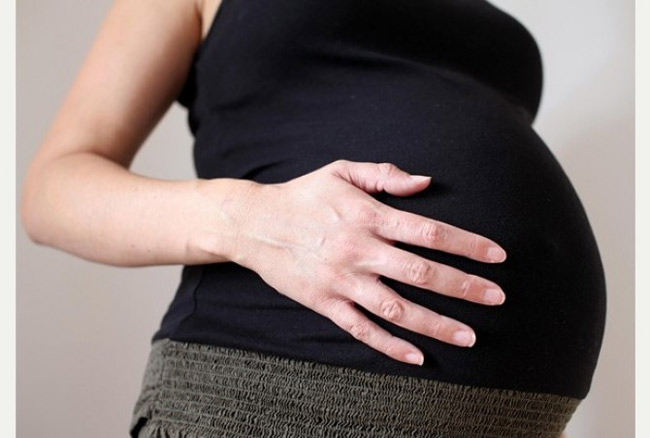
Children whose mothers gain excess weight or have elevated blood sugar during their pregnancies are more likely to become overweight or obese during their first decade of life, according to a new Kaiser Permanente study published in Maternal and Child Health Journal.
The study, which followed more than 24,000 mothers and their children over 10 years, is the largest to date on the topic and the first to show that these pregnancy risk factors increase the likelihood of childhood obesity even in babies who are normal weight (5.5 to 8.8 pounds) at birth.
Previous studies have shown that excess weight gain and elevated blood sugar during pregnancy increase a woman’s risk of delivering a large baby who is more likely to become an obese child; however, until now, there wasn’t much evidence that these risk factors also affected normal-weight babies.
“When women have elevated blood sugar and gain excess weight during pregnancy, it seems to change the baby’s metabolism to ‘imprint’ the baby for childhood obesity,” says Teresa Hillier, MD, lead author and senior investigator with the Kaiser Permanente Center for Health Research. “We’re not sure yet of the exact mechanism of this change, but it appears the baby is adapting to an overfed environment, whether from glucose or extra weight.”
All children of mothers who had elevated blood sugar during pregnancy were at higher risk for childhood obesity, but those whose mothers had gestational diabetes — the highest level of elevated blood sugar — were at the greatest increased risk.
Those children were at least 30 percent more likely to be overweight or obese between the ages of 2 and 10, compared to children whose mothers had normal blood sugar.
Children of mothers who gained 40 pounds or more during pregnancy were at least 15 percent more likely to be overweight or obese between the ages of 2 and 10, compared to children whose mothers gained less than 40 pounds. The Institute of Medicine recommends a maximum pregnancy weight gain of no more than 40 pounds.
Many other behavioral and environmental factors contribute to childhood obesity, including the baby not being breastfed, a child’s poor eating and exercise habits, and lack of access to healthy foods and safe areas to play.
In fact, more than one-third of babies born in the U.S. will become overweight or obese as children and adolescents, according to the Centers for Disease Control and Prevention.
The authors say this study shows that the effect in the womb on the baby’s metabolism may be as important as what happens after the child is born.
“We can’t wait until the baby is born to determine and address the impact on childhood obesity,” said Dr. Hillier, who is an endocrinologist. “We need to intervene during the mom’s pregnancy to help her with nutritional and lifestyle changes that will result in healthy weight gain, healthy blood sugar and ultimately, healthy children.”
Dr. Hillier’s study included women and babies who were Kaiser Permanente members in Oregon, Washington and Hawaii. All of the mothers gave birth to normal weight babies between 1995 and 2003. The researchers matched the mothers’ medical records with their children’s records, and followed the children from ages 2 to 10.
The study was funded by a grant from the American Diabetes Association and the National Institute of Child Health and Human Development (R01HD058015).
Additional authors include: Kathryn Pedula, MS, and Kimberly Vesco, MD, MPH, of the Kaiser Permanente Center for Health Research in Portland, Oregon; and Caryn Oshiro, RD, PhD, and Keith Ogasawara, MD, of the Kaiser Permanente Center for Health Research in Honolulu.
Dr. Vesco studies weight gain during pregnancy and has developed a “tool kit” to help providers and patients address this issue.
